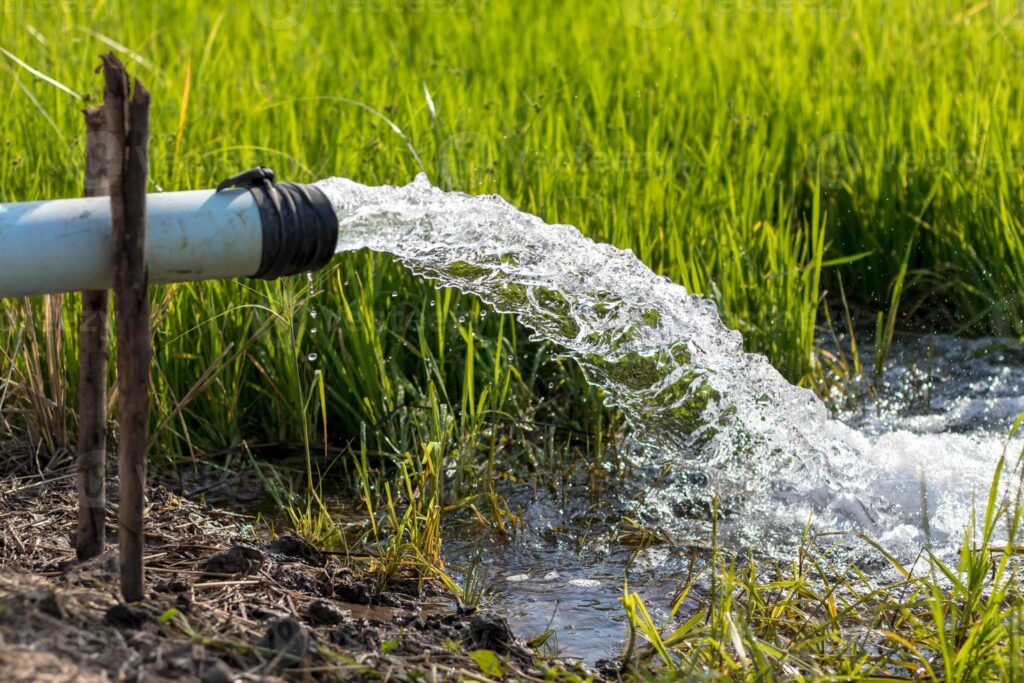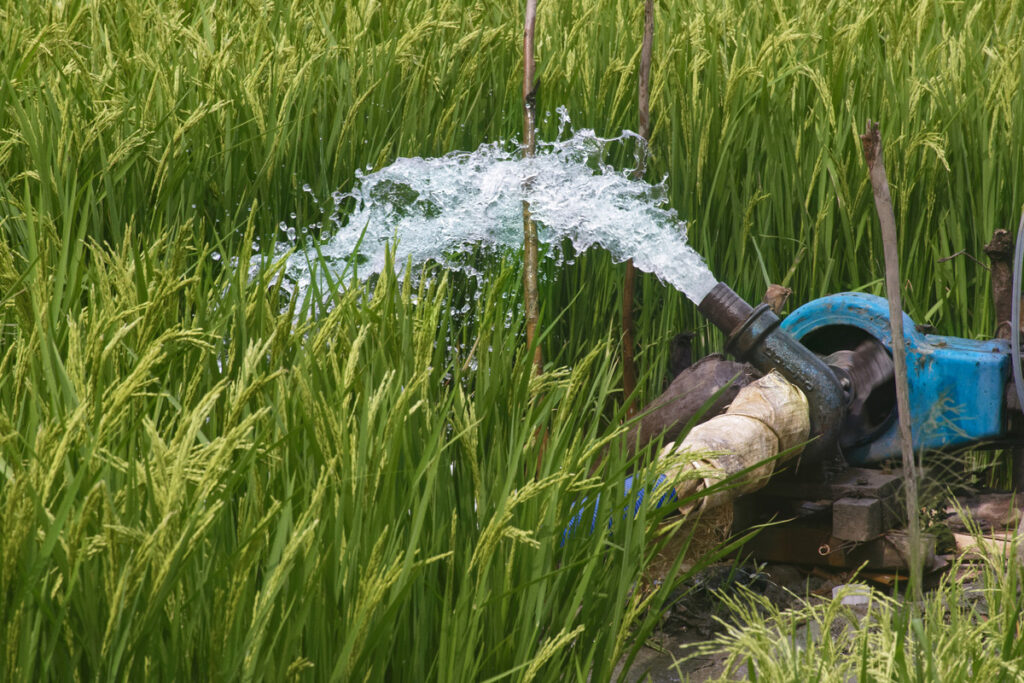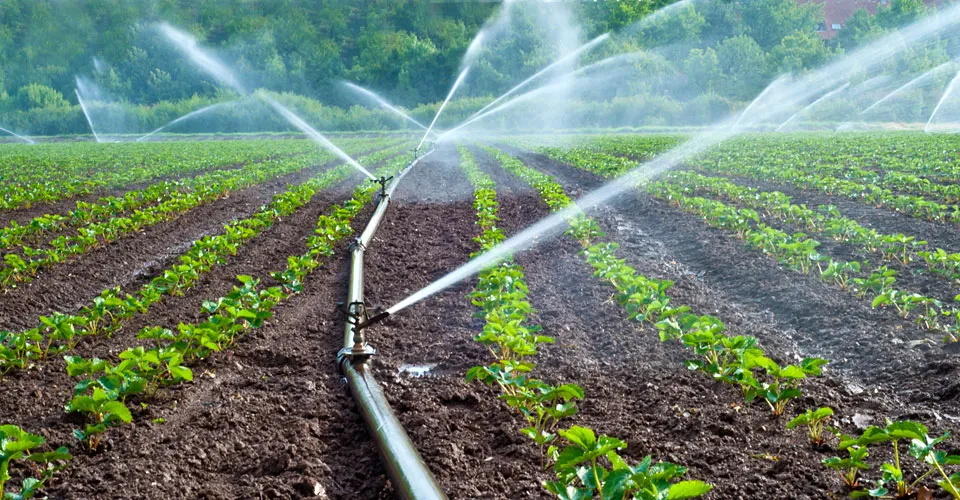On-Farm Water Management in Odisha is a precious resource, essential for the survival and growth of all living organisms. In the context of agriculture, water plays a critical role in ensuring optimal plant growth and crop productivity. In a state like Odisha, where agriculture is a major contributor to the economy, effective on-farm water management becomes all the more important.
Odisha is known for its varied agricultural activities, ranging from paddy cultivation to horticulture. However, the state faces significant challenges related to water scarcity, erratic rainfall, and inadequate irrigation facilities. These issues have a direct impact on the productivity and income of farmers and necessitate the adoption of efficient on-farm water management practices.
One of the key aspects of on-farm water management is the use of efficient irrigation techniques. Traditional flood irrigation methods often lead to wastage of water and uneven distribution across the fields. In recent years, various water-saving irrigation techniques have been introduced in Odisha to address these issues.

Drip irrigation is one such technique that has gained popularity among farmers in the state. In this method, water is delivered directly to the plant roots through a network of pipes and emitters. Drip irrigation not only conserves water by reducing evaporation and runoff but also ensures targeted delivery of water, thereby improving crop yield and water-use efficiency.
Another innovative technique being adopted in Odisha is the use of sprinkler irrigation. In this method, water is sprayed over the crops in the form of a fine mist, simulating natural rain. Sprinkler irrigation is particularly suitable for areas with uneven topography or sandy soils, where water infiltration is a challenge. This technique enables efficient water distribution and can be combined with fertigation (fertilization through irrigation) for better nutrient management.
Apart from adopting advanced irrigation techniques, on-farm water management also involves optimizing water use through efficient crop scheduling and water budgeting. Farmers are encouraged to select crop varieties that require less water and have higher tolerance to drought and salinity. They are also encouraged to plan their crop rotations and planting schedules in a way that maximizes water-use efficiency
You can read our another post on Mahima Dharma and Biswanathbaba in Odisha

The government and various non-governmental organizations in Odisha are actively involved in promoting on-farm water management practices among farmers. They provide training, technical support, and subsidies for the adoption of water-saving technologies. In addition, water user associations and farmers’ cooperatives are being formed to facilitate collective action in water management and encourage the sustainable use of available water resources.
Efforts are also being made to enhance the storage and conservation of rainwater in Odisha. Construction of small ponds, check dams, and farm ponds is being promoted to capture rainwater for irrigation and recharge groundwater. These structures not only provide a supplementary water source but also help in flood control and mitigate the adverse effects of drought.
On-farm water management is a crucial component of sustainable agriculture in Odisha. It not only ensures efficient use of water resources but also contributes to improved crop yields, higher farmer incomes, and overall rural development. As the state continues to face challenges related to water scarcity and erratic rainfall, the adoption of advanced water-saving techniques and the promotion of community-based water management initiatives are the keys to achieving long-term food security and agricultural sustainability.

Write A FAQ For On-Farm Water Management in Odisha
What is on-farm water management in Odisha?
On-farm water management in Odisha refers to the efficient and sustainable use of water resources within agricultural systems in the state of Odisha. It involves various practices and techniques aimed at conserving and managing water on farms to increase productivity and mitigate water-related risks.
Why is on-farm water management important in Odisha?
Odisha is predominantly an agrarian state, with agriculture being the primary source of livelihood for a significant portion of the population. However, the state faces numerous challenges related to water availability, including erratic precipitation patterns and frequent droughts. On-farm water management helps farmers optimize the use of limited water resources, enhances crop water productivity, reduces wastage, and improves resilience to climate change.
What are some key practices of on-farm water management in Odisha?
Some key practices of on-farm water management in Odisha include the construction of water storage structures like farm ponds and tanks, drip irrigation systems, mulching, crop water budgeting, efficient irrigation scheduling, and the adoption of water-efficient farming techniques and technologies. These practices aim to minimize water losses, improve water-use efficiency, and ensure adequate supply for crop growth.
How does on-farm water management benefit farmers in Odisha?
On-farm water management offers several benefits to farmers in Odisha. Firstly, it helps in maximizing crop yields and overall farm productivity by ensuring crops have access to adequate water during critical growth stages. This leads to an increase in incomes and improved food security. Additionally, efficient water management reduces dependency on rainfall, mitigates the risks of water scarcity, and increases the overall resilience of agricultural systems.
What initiatives and support systems are available for implementing on-farm water management in Odisha?
The Government of Odisha has undertaken various initiatives to promote on-farm water management in the state. These include providing financial support and subsidies for the construction of farm ponds, promoting the adoption of drip irrigation through training and awareness programs, and facilitating the adoption of water-saving technologies and practices through agricultural extension services. Additionally, there are also NGOs and research organizations working to enhance water management practices and provide technical support to farmers in Odisha.
